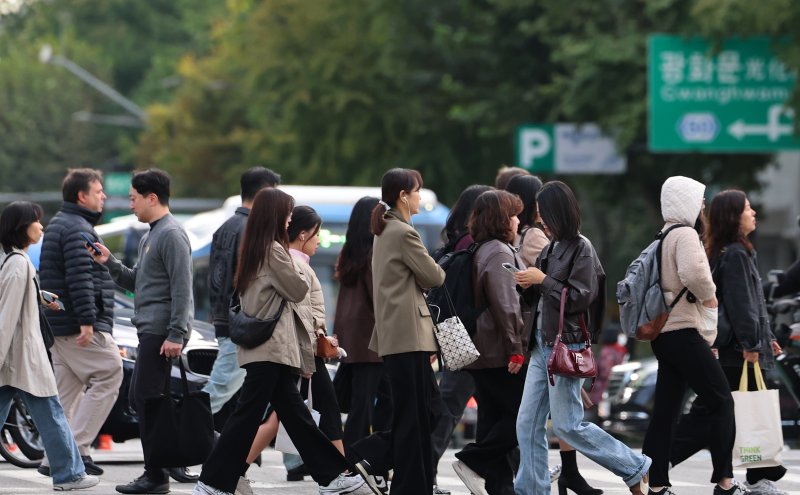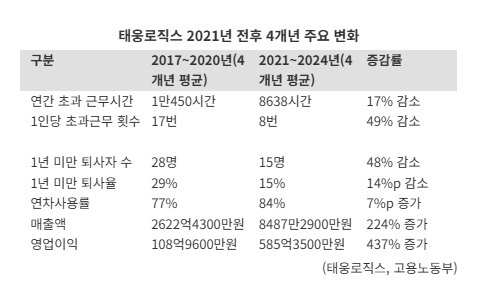Flexible Work and Annual Leave Activation Lead to Reduced Overtime and Resignations, Increased Sales and Operating Profit
- Input
- 2025-11-12 12:20:06
- Updated
- 2025-11-12 12:20:06

The task force announced plans to develop policy measures that allow companies to voluntarily reduce working hours, as demonstrated by Taewoong Logistics. On the 12th, the task force held its fourth meeting at the Taewoong Logistics office in Seocho-gu, Seoul, where they listened to company case studies and held a roundtable with young and parenting employees.
Taewoong Logistics, an international logistics service provider with about 400 employees, participated in workplace innovation consulting by the Korea Labor Foundation in 2020. Since then, the company has introduced a smart work environment, improved organizational culture, expanded flexible working hours for all employees, and promoted the use of annual leave.
By digitizing paper documents and introducing Robotic Process Automation (RPA) to handle repetitive tasks, efficiency was improved. At the same time, the company launched the 'Zero-Back Campaign' (eliminating overtime and encouraging 100% use of annual leave), expanded flexible working hours to all employees, enabled remote work for pregnant employees and those with mobility difficulties, and encouraged annual leave usage. The flexible working system allows employees to choose their start time—8 a.m., 9 a.m., or 10 a.m.—with corresponding end times at 5 p.m., 6 p.m., or 7 p.m.

As a result, both working hours and resignations declined, while management performance improved. From 2021 to 2024, the average overtime hours, number of overtime instances, and resignations within the first year decreased by 17%, 49%, and 48% respectively, compared to the previous four years (2017–2020). The resignation rate within the first year dropped by 14 percentage points. During the same period, annual leave usage, sales, and operating profit increased by 7 percentage points, 224%, and 437%, respectively.
Kim Seung-kyu, head of the HR team at Taewoong Logistics, stated, “The 2020 workplace innovation consulting by the Korea Labor Foundation was a turning point for us to continuously improve productivity and reduce working hours. These efforts led to lower resignation rates and increased sales and operating profit.” Since 2022, Taewoong Logistics has also received support from the Ministry of Employment and Labor (MOEL) for building work-life balance infrastructure.
The task force plans to review policy support measures to help similar cases spread in the future. They will continue to gather feedback through field meetings with company executives, workplace innovation consultants, and public forums.
Lee Hyun-ok, Director-General of Labor Policy at the Ministry of Employment and Labor, commented, “The case of Taewoong Logistics is a good example of how workplace innovation can enhance workers’ control over their time and improve corporate competitiveness. The task force will prepare policy support so that companies can voluntarily pursue productivity improvements and reduced working hours.”
jhyuk@fnnews.com Kim Jun-hyuk Reporter